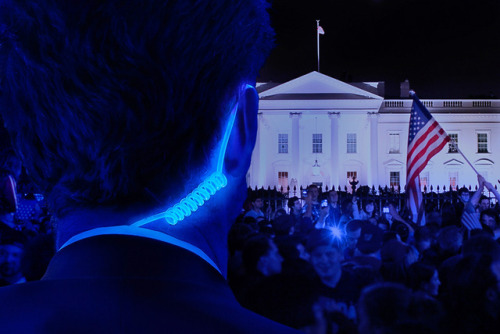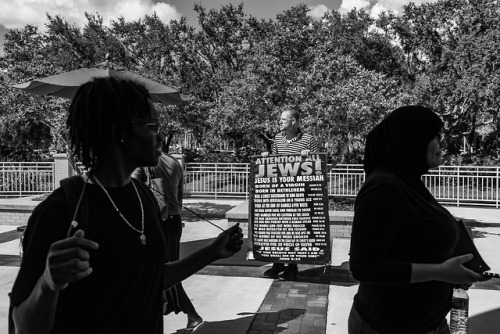#first ammendment
Surveillance State
Asurveillance state is a country where the government engages in pervasive surveillance of large numbers of its citizens and visitors. Such widespread surveillance is usually justified as being necessary to prevent crime or acts of terrorism, but may also be used to stifle criticism of and opposition to the government.
Examples of early surveillance states include the former Soviet Union and the former East Germany, which had a large network of informers and an advanced technology base in computing and spy-camera technology. But these states did not have today’s technologies for mass surveillance, such as the use of databases and pattern recognition software to cross-correlate information obtained by wire tapping, including speech recognition and telecommunications traffic analysis, monitoring of financial transactions, automatic number plate recognition, the tracking of the position of mobile telephones, and facial recognition systems. $
Post link
Speechless
In the United States, freedom of speech and expression is strongly protected from government restrictions by the First Amendment to the United States Constitution.
Categories of speech that are given lesser or no protection by the First Amendment include obscenity (as determined by the Miller test), fraud, child pornography, speech integral to illegal conduct, speech that incites imminent lawless action, and regulation of commercial speech such as advertising.
Within these limited areas, other limitations on free speech balance rights to free speech and other rights, such as rights for authors over their works (copyright), protection from imminent or potential violence against particular persons, restrictions on the use of untruths to harm others (slander), and communications while a person is in prison. When a speech restriction is challenged in court, it is presumed invalid and the government bears the burden of convincing the court that the restriction is constitutional.
In a 9–0 decision, the Supreme Court extended the full protection of the First Amendment to the Internet in Reno v. ACLU, a decision that struck down portions of the 1996 Communications Decency Act, a law that prohibited “indecent” online communication (that is, non-obscene material protected by the First Amendment). The court’s decision extended the same Constitutional protections given to books, magazines, films, and spoken expression to materials published on the Internet. Congress tried a second time to regulate the content of the Internet with the Child Online Protection Act (COPA). The Court again ruled that any limitations on the internet were unconstitutional in American Civil Liberties Union v. Ashcroft (2002).$
Post link
Fundamentalist preacher shouting at students on campus at Florida Southwestern State College, in Fort Myers, Florida.
Post link




